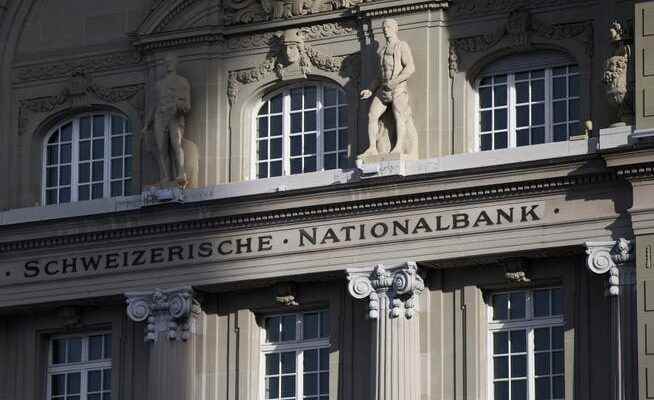Consumer prices in Switzerland continued to rise in August. In order to prevent inflation from becoming entrenched and spilling over into more and more goods, the SNB should raise the key interest rate this month – also as a signal to employees.
The Swiss National Bank is challenged in the fight against inflation.
The neighboring European countries may envy Switzerland for its comparatively low inflation. But just because it’s worse elsewhere doesn’t mean you can sit back and relax in this country. Life in Switzerland is becoming more and more expensive. New data shows consumer prices rose 3.5 percent in August from a year earlier. The value is at the upper end of expectations and at the highest level since the early 1990s. There can still be no question of an easing on the price front.
Negative interest rates coming to an end soon
The inflationary pressure comes mainly from abroad – and in particular from energy goods. So have the imported goods 8.6 percent more expensive than in the previous year. This pressure can be cushioned somewhat by the Swiss National Bank (SNB). The monetary watchdogs have been tolerating a nominal appreciation of the franc for months and – unlike in previous years – are holding back on buying foreign exchange. Nevertheless, a franc strengthening against the euro cannot fight inflation on its own; it takes more.
The SNB should therefore raise the key interest rate in three weeks time at its next monetary policy assessment. After she already did this in June – surprisingly strong at the time – she now has to double up. Because economic history teaches us that once inflation has exceeded a critical level, as is currently the case in Switzerland, decisive and rapid action is essential. If you hesitate, for example out of consideration for the economic development, you will have to hit the brakes all the harder later. That serves nobody.
The monetary authorities should be concerned that in August core inflation rose again compared to the previous month, both in the euro area and – at a much lower level – in Switzerland. What is meant is inflation that excludes, among other things, the prices for energy and fuel. This shows that the increase in inflation is not solely a consequence of the Ukraine war and the associated energy crisis. Rather, inflation is also spreading to more and more sectors that are not directly affected by these events.
A signal to the workers
Inflation threatens to become entrenched, whether on price tags or, even more dangerously, in people’s minds. Wages and the unions, who want to present their wage demands for 2023 this Friday, play an important role in the danger of such second-round effects. Only if a worker can count on the central bank to take decisive action against inflation will they be willing to do their part to prevent a dangerous wage-price spiral.
Monetary policy credibility is correspondingly important. This also applies to the SNB. There is therefore a high probability that the National Bank will actually increase its key interest rate by -0.25 percent on September 22, thereby ending the negative interest rate regime in the country. SNB President Thomas Jordan has recently repeatedly signaled that further rate hikes may be necessary in the foreseeable future. The last time he did this was on Saturday at the central bank conference in Jackson Hole, America.
It is not a law of nature that Switzerland has lower inflation than its neighbors. This circumstance is also due to a national bank that gives greater weight to the goal of price stability than the European Central Bank (ECB). Out of consideration for over-indebted member states, the latter has been acting far too expansively for years. In June, the SNB finally got out of the slipstream of such delaying policies. In three weeks, this emancipation should be confirmed with a further rate hike. The latest inflation numbers speak for it.
